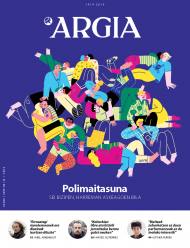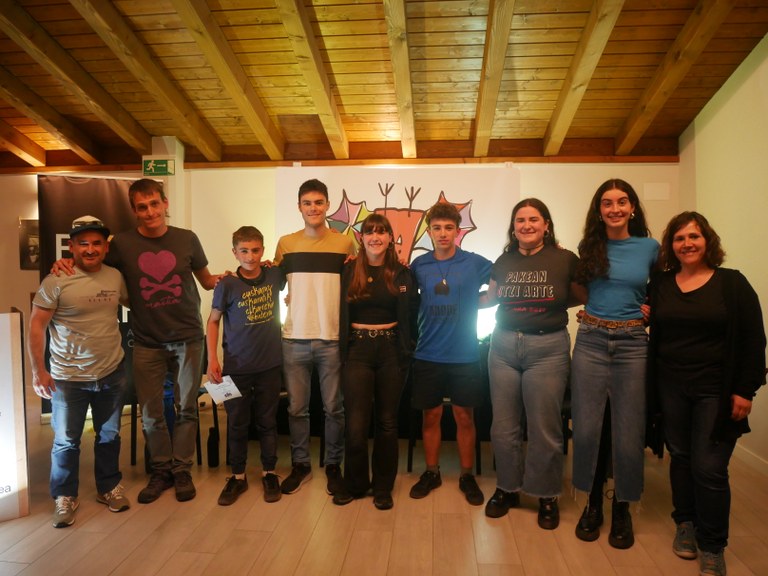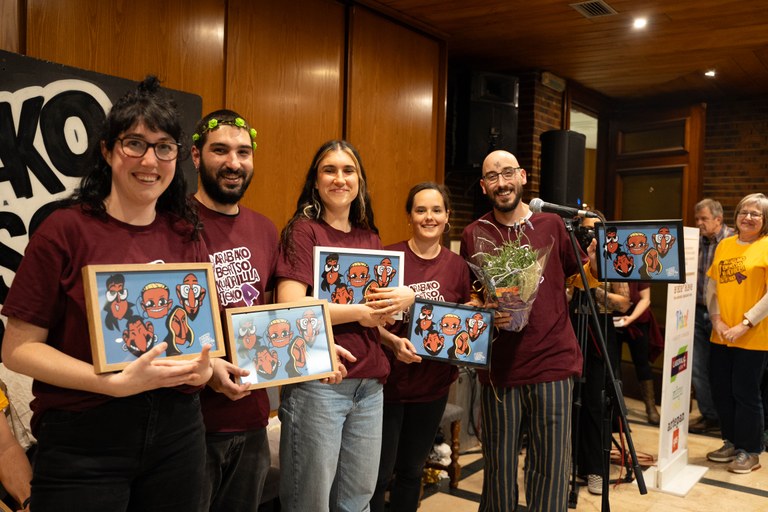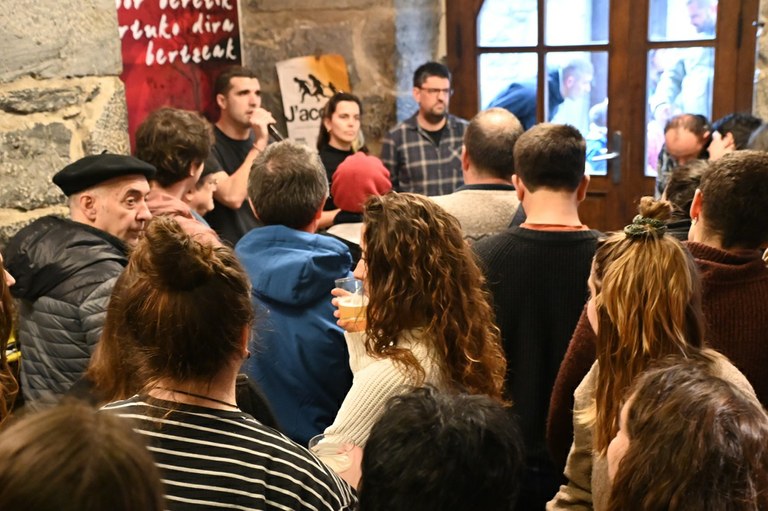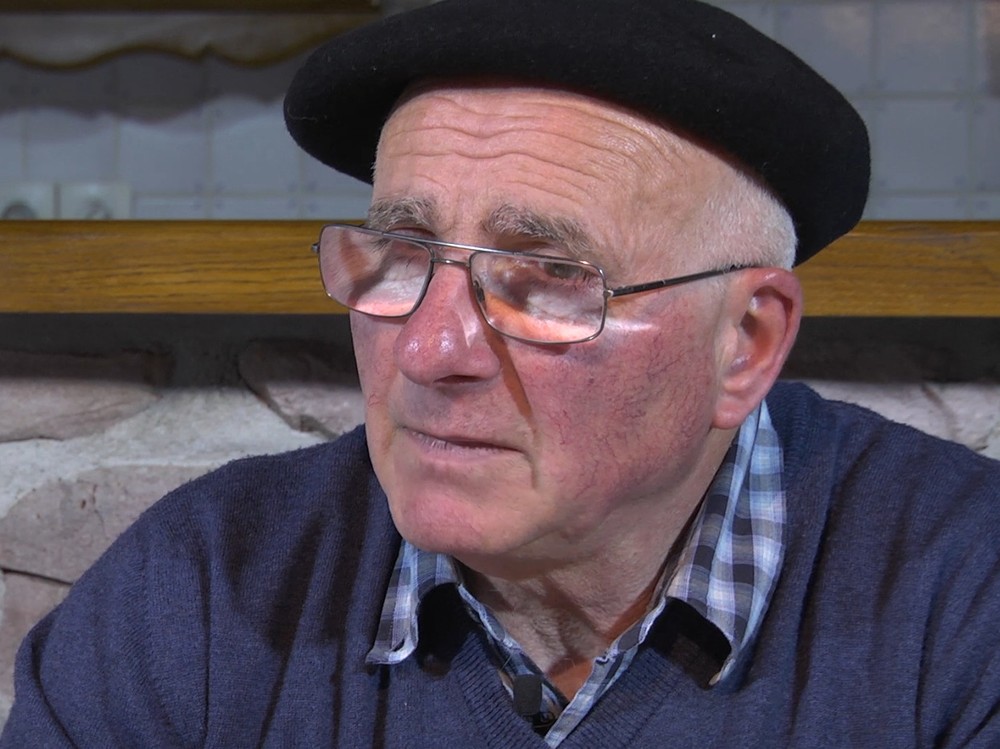"We've always been saying good things about the bertso world, we've been ashamed to tell bad things."
- Onintza Enbeita has been bertsolari, in the written press, on television, in politics and in the garden, among others. Asked for him, however, he highlighted a performance above the others: he told us that he feels “bertsolari” above all and that he is “a woman bertsolari”. Why determine it like this? Because “the fact of being a woman in this binary world has conditioned my Bertsolaris and surely everything I have done.”
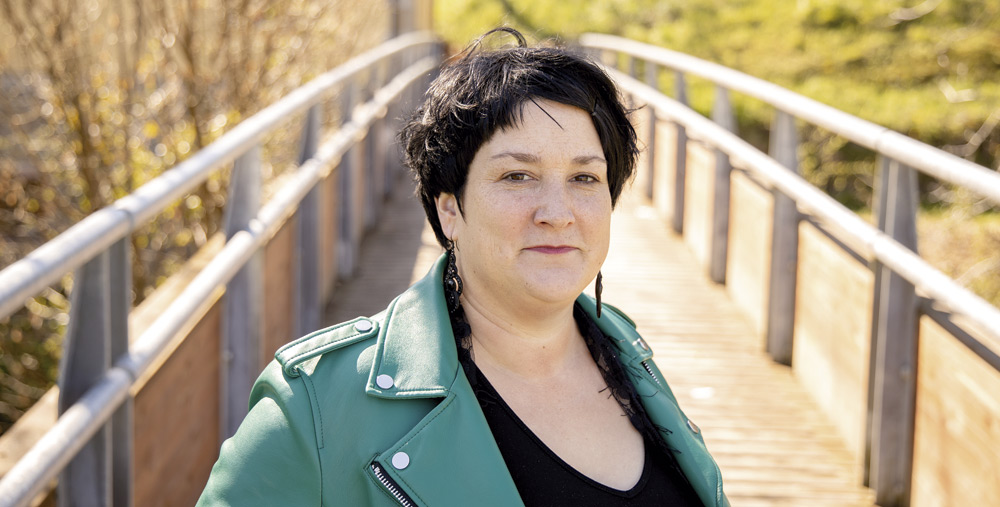
Bertsolaria, Bizkaiko egungo txapelduna. Formazioz kazetaria da, eta jardun horretan ibili da, besteak beste, Euskaldunon Egunkaria-n. Telebistan ere egin du lan. Gaur egun, Gure doinuak izeneko saioa aurkezten du. Agroekologiako ikasketak egin ditu. Zutabea idazten du egunero Berria egunkarian. 2012tik 2016ra bitarte diputatu aritu zen Espainiako Gorteetan, EH Bildu alderdiaren eskutik.
I will confess that I wanted to interview you for a long time. Since December 2016. He was at the Congress of Deputies for four years, representing EH Bildu, and talked about his experience at the Feministaldia festival. Do I want to ask you first of all, and from the very beginning nuke.Nola you came to Madrid?
I have always been a militant of the Abertzale left, and although I had many doubts and contradictions, to see if we were going to go to Madrid or not, when the situation was created I left. That was the result of a resignation, and I, a 32-year-old, went there to replace a 50-year-old adult. During the first two or three months I got a message from society: don't think you're going to replace anybody. I began to be aware of what was taken and a whole volcano began to erupt.
Despite everything, it went on.
I came to Madrid with absolute unconsciousness, and I like to talk about unconsciousness and consciousness, because when you do things without knowing it, when you enter the cave of the wolf without knowing it, it's unconsciousness, but when you go in knowing that the wolf is there, it's daring. We started this way in the plazas, unconsciously, and as we kept on becoming aware, we became brave. In politics the same thing. After four months of great fear and many complexes, I did an exercise to empower myself and develop my own speech, and I endured three and a half years. Then I said yes to make a political campaign. I think I was brave there as well.
How would you describe congress and politics in general?
It seemed to me that politics was a jungle of Christ. My biggest disappointment is that the president is not the only one in that forest. Outside Congress, outside the Basque Government’s Parliament, it is regrettable how many factual powers there are, which are voted by those we do not have and which take decisions over us. On the other hand, frivolity is tremendous. It is very painful to know that the budgets have been approved because I do not know who has decided that it is in our interests, I do not know what competence, when that status of competences is an organic law and should be complied with some time ago. It's very painful because they play with our daily lives. In Congress, there's not much anger, there's not much difference, because then in the cafeteria, everyone's very friendly.
How did you take it?
For me, it was very hard to go out to the microphone and have everybody jump on top, insult themselves, listen to each other, and then go to the cafeteria and do as if nothing happened. I couldn't stand it. Those people spoil our lives and they insult us when we come to propose logical things, and then they think we'll be their friends in the cafeteria? I don't care, I didn't go there to make friends. Adopting this attitude was a process of empowerment: I have not come here to make friends, I will return home with the same friends I had before, but at least I will tell you that this and this, I will tell you that you have tortured, that you have managed to kill a lot of people on the roads, that you have managed to kill a lot of hungry people, not reach the end of the month…
He dedicated us good times.
Of course, many good things happened, not everything in life is a tragedy. For me there is a very nice detail and it sums up a lot of our experience. The day after that famous “In my pussy and in my pussy I control”, I was quietly in my office. The handrails were walking around every day to collect paper and plastic and there was a mature woman, about 60 years old, who entered that day in my office, stealthily closed the door inside and told me that I had some sovereign obarians, that the day before I had done a beautiful thing and gave them to me. So I thought, look, maybe here we won't get anything, here the PP has an absolute majority, but this is worth it, the 60-year-old woman is cleaning up here, with the sort of classism that's out there, will be the last eye of the chain in the congress. If yesterday's one has given him the strength to go out into the street and other things, and to feel that he and I are going to be in the same fight on many things, I'm happy.
"To enter the cave of the wolf without knowing it is unconsciousness, to enter knowing that the wolf is there is brave"
When he was still in Madrid, he participated in the election campaign of the next legislature as a candidate for the Senate.
In this campaign, two women were put on the list in Bizkaia, both for the Senate and for the Congress. That was not decided by us, that was decided by the militants, that was decided in the assemblies and that's what EH Bildu decided. But then that decision was not made with the necessary security, many relationships were broken and everything was emptied until we got home. I believe that in this country you do not know how to wager and hold wagers, particularly in the case of women. If you smell something different from the official discourse, it's considered a threat, and I think that's a big mistake, and we have a lot of work to do. At the moment I know that I would not return to Madrid, but I continue to vote for the party I voted before and I continue to participate in my people in many things.
In that speech of the Feministaldia you mentioned another issue: the treatment and rejection of the media.
I was going through the conversations I had had during the four years of Madrid and I realized a lot of things. For example, I don't think it very normal how many times I had to answer to see if I was a fan of Rocío Jurado. What music I hear, someone will be curious about that, but in Madrid the right has an absolute majority, seven Basques from one party, five from another party, we try to work out speeches, make motions, put the reality of Euskal Herria on the table, and you only care if I hear Rocío Jurado or not. It seems to me a lack of respect at a particular moment, and that doesn't happen when male lawyers or engineers get into politics. I think there were many factors in my case: I was a young woman and I was bertsolari. There you see how undervalued Basque culture, including our media, is, how complex it is with our culture.

Now we come back to Bertsolarism. Only a month ago the book Kontrako eztarritik was published. The work, signed by Uxue Alberdi, is a collective work in part, as it collects the testimonies of fifteen Bertsolaris women, among them his own. You have told how being read as a woman has influenced you in the plazas and how you have experienced oppression. It is not an easy reading.
You take the book and it is a disgraceful one. I myself put in line the “bad” things that have happened to me in 24 years, and I say: “How haven’t I escaped from here? How have I endured this?” Bertsolarism, of course, has a lot of good. So far, we've always been saying good things, because we've been embarrassed to tell bad things. But when women have come to the plaza and we have touched the joy of the verse, they have made us suffer a lot. I am willing to pass this page of the book, to pass the suffering, but first we will tell what has happened, we cannot do as if nothing had happened.
Why?
Why do we want to exhume the corpses after the military uprising? Just to reassure families? No. We need to do a collective exercise and clarify what happened, who did it and why. Well, this is the same thing. If we want everything to go well from now on, we all have to know what has happened so far. I have not told what I have told people to think, “the poor Onintza, what he has suffered.” This conclusion does not serve me. I have told what I have told you only for one thing: those oppressions to identify them, to see that they have been in everyone’s lives, and to tell girls and women that those things don’t happen to you because you’re silly, not because you’re uglier than others, not because you’re thinner, not because you’re fatter, but because we live in a male society, because the patriarchy commands…
Some Bertsolaris women have stated that they have not felt that way.
I think that is all well and good. I am not going to impose my experience on anyone, but nobody will deny me my experience.
You have signed testimonies by name and surname, but you have not pointed anyone with your finger.
It did not matter to me whether one or another responsibility has said it or made me feel. In the end, what happened? For a class in privilege, the class of men, has thought at a time when it's above us, unconsciously or consciously, and that's why they've had a way of acting. I don't care who I was, father, father, cousin or uncle, because any of them can be, and I think it was necessary to do that exercise.
So are you happy with the result of the book?
Yes, I think it was a very good exercise. On the one hand, we've lost the fear of saying everything we've felt, and on the other hand, I see that today when a 16-17-18-year-old girl jumps to the plaza, ideologically it's not where I was, but far beyond.
In all of this, you've won the Bizkaia txapela. Congratulations.
Thank you.
Hat and stick. What was it for you?
He came at a time that I didn't expect. I thought it would be my last championship. From November 1 to December 15, I did a mental exercise and I said: In 2019 I have to turn 40, I've been in the championship since I was 18, it's enough. Bizkaia's txapela has never won a woman, but Nerea [Ibarzabal] will come, Miren [Amuriza] will come, Jone [Uria] will come, and win, and I will be in public to protect them, and nothing will happen. I suddenly saw my cap on my head. I felt joy, I thought: we have achieved it, in Bizkaia too the stick is in the hands of a woman, and symbolically this hegemony comes into the hands of all women. It is not only that in the last four finals we have reached four women to the end; no, moreover, we are able to win. We have come here and we are where we deserve. That feeling is tremendous.
Precisely, the day after winning the txapela, you stressed that this was a collective victory. However, many denounce that there is a tendency to put all women in the same bag. What do you think of this?
I've won the txapela, of course. The merit is of oneself, each one has set the hours and each one has had a good day or a proper concentration, there is no doubt about it. Another thing I want to say is that in the interviews we say that the txapela is the result of the whole race, the prize, because no, because the txapela is won in an afternoon or lost. In the end, it's that txapela. And I won the txapela because I did well on bertsos on December 15, and she has no other lap. Of course, when we begin to sing bertsos, as men are the representatives of themselves, we are certainly also the representatives of ourselves, and that must be claimed and underlined, and it must be so: we are not a homogeneous sack, we are very heterogeneous, very diverse people. But I think we've made a collective struggle to be in the square and get legitimacy, I think we've made a path, and I don't want to forget those who have done it. For example, if Kristina Mardaras had not been presented at the 1986 Euskal Herria Championship, it is possible that Maialen [Lujanbio] or Iratxe [Ibarra] or I do not know who would have been the first woman to go to the Euskal Herria Championship fifteen years later, and then we would have the way much further back in our process. I claim that path, that not everyone is in the same bag.
Maiatzaren 8an hasiko da Bizkaiko Bertsolari Txapelketako sailkapen fasea. Zortzi saio bikoitz jokatuko dira maiatzeko eguenetan. Sarrerak eskuragai daude bertsosarrerak.eus atarian.
Asteburu honetan hasiko da Gaztetxeak Bertsotan egitasmo berria, Itsasun, eta zazpi kanporaketa izango ditu Euskal Herriko ondorengo hauetan: Hernanin, Mutrikun, Altsasun, Bilboko 7katun eta Gasteizen. Iragartzeko dago oraindik finala. Sariketa berezia izango da: 24 gaztez... [+]
Vagina Shadow(iko)
Group: The Mud Flowers.
The actors: Araitz Katarain, Janire Arrizabalaga and Izaro Bilbao.
Directed by: by Iraitz Lizarraga.
When: February 2nd.
In which: In the Usurbil Fire Room.









